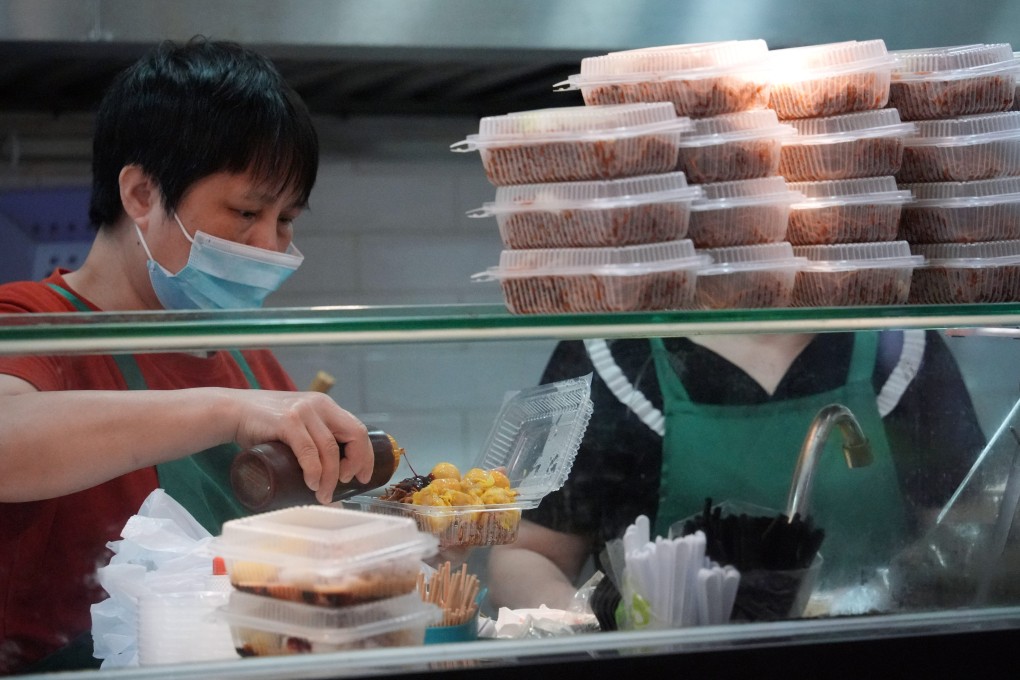Hong Kong’s plastics ban: minister says policy not ‘unreasonable’ amid confusion over dining-in, takeaway rules
- Environmental chief Tse Chin-wan says policy’s main purpose to educate public on waste reduction, following confusion over rules for pre-packaged supermarket sushi
- ‘If one’s business is meant to prepare ready-to-go food, we think that should be deemed as takeaway, and that means it is not necessary to be sealed’, he says

Secretary for Environment and Ecology Tse Chin-wan said on Saturday that the policy’s main purpose was to educate the public on how to reduce waste, stressing it was not intended to inconvenience businesses.
“If one’s business is meant to prepare ready-to-go food, we think that should be deemed as takeaway, and that means it is not necessary to be sealed; otherwise customers will not be able to choose,” Tse told a radio programme.
“Just like sushi, if people cannot see what they want to choose, this law will be quite unreasonable. How are they going to pick [what they want]?”
The first stage of the ban prevents restaurants from offering customers any polystyrene products, disposable plastic straws, stirrers, cutlery or plates for dine-in or takeaway meals.